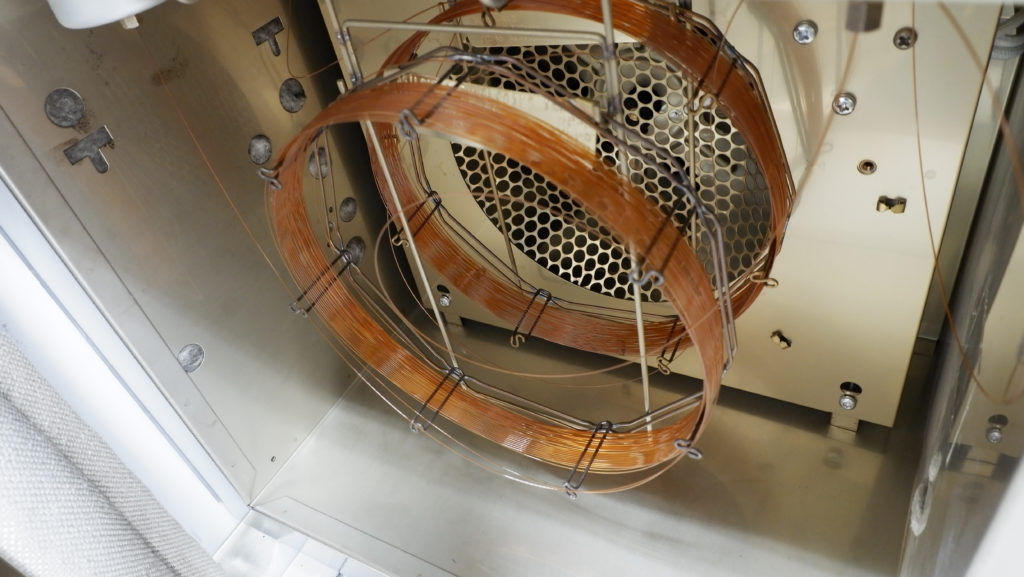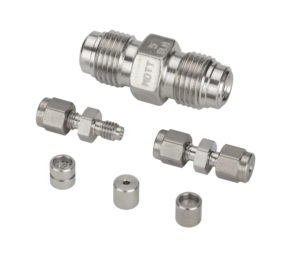Gas Chromatography
Mott designs and manufactures flow control parts specifically for the delivery of mobile phase and carrier gases in gas chromatography instrumentation. For years, industry-leading gas chromatography instrumentation OEMs have relied on our restrictors for precision, accuracy, and ease of installation.

Questions? Call 860.747.6333 Today!
Related Resources
Typical Applications:
- Drug Discovery
- Environmental Monitoring
- QA/QC Laboratories
Flow Restrictors
Mott is the expert in customized fluid control devices and works extensively with design engineers in nearly every industry. Our products replace drilled orifice, capillary tubing and needle valves that wear out over time and deliver inconsistent results.
Porous Metal Overview
Check out the features and benefits of Mott sintered porous metal media that delivers uniform porosity for superb filtration efficiency and structural integrity.
Lab & Engineering Services
Discover our entire range of services, including rapid prototyping, filter feasibility, media characterization and more.
Explore Mott's Capabilities
Provides an overview of markets served, applications, products, materials, and engineering capabilities.
What is Gas Chromatography?
Gas chromatography (GC) is a laboratory technique used for separating and analyzing compounds that can be vaporized without decomposition. In this method, a sample is vaporized and introduced into a chromatograph, where it is carried by an inert gas through a column. As the sample travels through the column, its compounds separate based on their interaction with the column’s stationary phase. The separated compounds are then detected and quantified, producing a chromatogram that represents the composition of the sample.
FAQs: Gas Chromatography
Q: How do Mott’s flow restrictors enhance gas chromatography instrumentation?
A: Mott’s flow restrictors are designed to provide precise and consistent control over the flow rate of the carrier gas in gas chromatography instruments. By replacing traditional components like drilled orifice and capillary tubing, Mott’s restrictors offer improved durability and accuracy, ensuring more reproducible results and extended instrument lifespan.
Q: What makes Mott’s sintered porous metal media unique in gas chromatography?
A: Mott’s sintered porous metal media stands out due to its uniform porosity, which ensures efficient filtration and robust structural integrity. This media delivers consistent flow rates and prevents potential blockages or contaminations, enhancing the overall performance and reliability of gas chromatography systems.
Q: How does gas chromatography work?
A: In gas chromatography, a sample is vaporized and injected into the beginning of the chromatograph. A carrier gas, often helium or nitrogen, is used to move the sample through a column. As the sample travels through the column, different compounds separate based on their interaction with the stationary phase inside the column. A detector at the end of the column measures the amount of each separated compound, producing a chromatogram.
Q: What are the main components of a gas chromatograph?
A: The primary components of a gas chromatograph include an injection port, a carrier gas source, a column, a temperature-controlled oven, and a detector. The injection port is where the sample is introduced, the column is where separation occurs, and the detector identifies and quantifies the separated compounds.
Q: Why is the choice of carrier gas important?
A: The carrier gas plays a crucial role in transporting the sample through the column. Its choice affects the separation efficiency, analysis time, and sensitivity of the detection. Common carrier gases include helium, hydrogen, and nitrogen, each having its own advantages and considerations.
Q: What are flow restrictors in gas chromatography?
A: Flow restrictors are components used to control the flow rate of the carrier gas in gas chromatography instruments. They ensure consistent and precise flow, which is essential for accurate and reproducible results. Flow restrictors can replace traditional components like drilled orifice and capillary tubing that may wear out over time.
